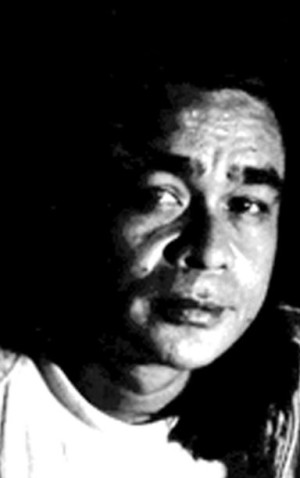
RAYMUND FERNANDEZ
Freedom is a funny thing. Some people go through life thinking it is all about doing everything “the man” tells you. Others think the opposite.
And yet, either way could be right.
It all depends on a question raised in me first in a Hollywood comedy movie starring black comedian Eddie Murphy, unless I’m mistaken.
And I could be. It was a long time ago. The question was: “Who’s the man?” The movie itself answers the question with: “I’m the man!” “Who’s the man?” “I’m the man!”
A free man is his own man. But, of course, it is more than that. And from time to time I imagine myself in the shoes of Dr. Jose Rizal as he stood in front of the firing squad.
I imagine his thoughts. What would he be thinking? He had written a body of literary works sufficient to bring him here.
He would have been sure by then how good a writer he was.
What can validate literature better than its consequence to the world and, of course, the writer?
And as far as consequences go, what could be greater in the sense of consequence than this? El hombre, the Spanish man, was making a statement.
Write like this and we will kill you. And for his part, the good doctor was also making his own statement: I have written the truth.
I am a free man. So kill me!
So, who was the real man?
It might me argued that freedom is more than just history.
Right and wrong ought be a more fundamental question transcending historical bounds.
History, after all, can be quite fickle.
There are many places in the world where history has taken its people to a dark place where freedom is absent.
Were we to take a survey, we might possibly conclude that there are more unfree places in the world now than there are free ones.
Is freedom subjective? Most likely not. Is it relative? Most certainly so.
It cannot be subjective because freedom cannot be a purely personal thing.
Dr. Rizal was a free man because he would set his people free with his life and death.
He was not a free man when he died in front of a firing squad.
He could not on a whim go to the nearest 7-Eleven to buy himself a drink.
He would have been perfectly happy and just as free if he did not have to die. Freedom cannot be subject to how a person might define it for himself or herself.
It can only be relative to how a people, a collective — if you will, defines it for itself. Freedom will forever be contested territory.
The Spanish hombres had their own definition of freedom. And this was clearly the enemy of how we, Rizal’s Filipinos, defined it. The course of the revolution resolved the question.
But not according to an easy question of who was fundamentally right or wrong.
All resolutions to questions of freedom are resolved not as universal and immutable resolutions. Rather they are resolved as impermanent resolution of conflict; inevitably, the tensions between order and chaos.
Russia and China are certainly not free. But neither is the US. And despite Dr. Jose Rizal’s best intentions, neither are we.
Perhaps this question may as well be asked: Given the limits of our immediate world, Can we still be relatively free? How would we know? How could we prove it?
Thus did the graffiti artist, Bisquit, go off into the dark of night looking for a wall in a particularly dark street.
After contemplating the beauty of the wall’s emptiness as his teacher had taught him, he then proceeded to embellish the wall using cans of spray paint, his colors flying, proving to himself, or herself (for we cannot tell for sure), or us, the nature and extent of our freedom.
What he or she paints or writes into the wall may not be something of great consequence even as art.
But who knows? Dr. Jose Rizal was most likely not entirely sure either when they shouted a final order quickly followed by a loud report.
It echoed into the wind of Bagumbayan field one fine morning many years ago. Fuego!

